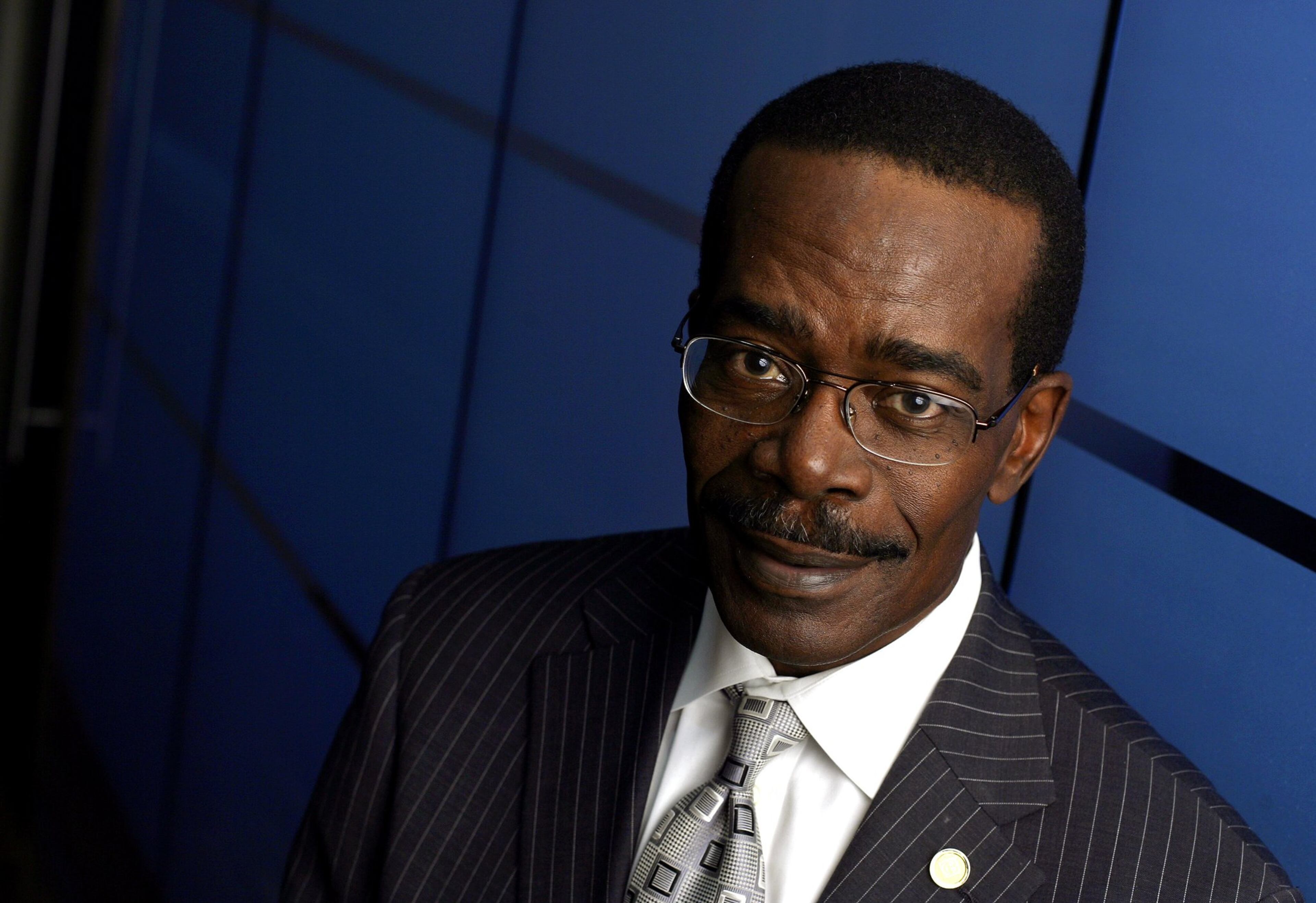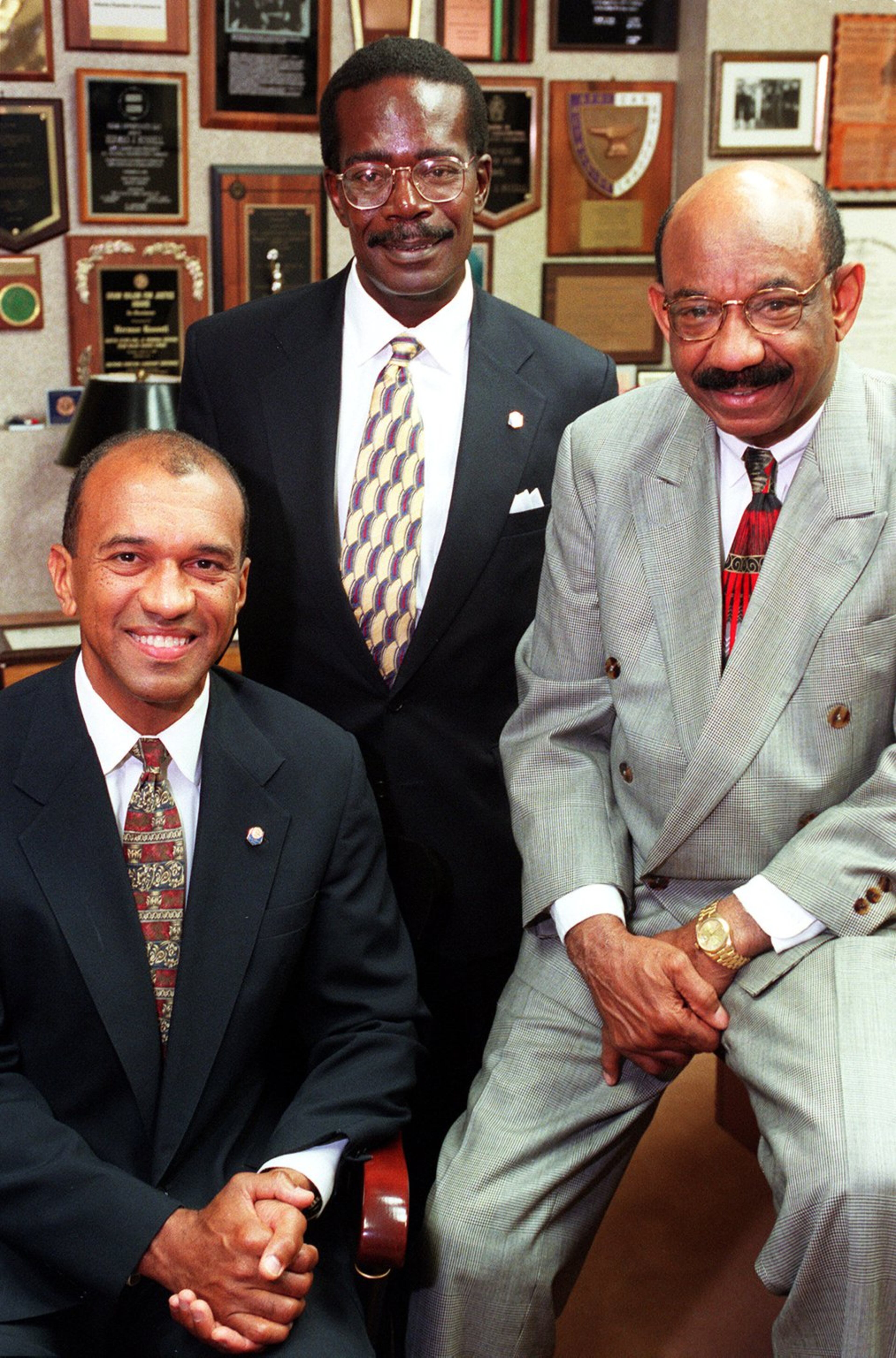Nearly 100 years old, black-owned Citizens Trust Bank champions homeownership, development

From credit builders to wealth builders. It’s a slogan and a motto of sorts for Citizens Trust Bank President and CEO Cynthia Day. She uses the phrase to describe the bank’s mission of serving customers at all levels, and its goal of helping them move from credit building into wealth building.
The six-word phrase also fits the unique financial institution Day leads. Citizens Trust Bank is one of Atlanta’s oldest — founded in 1921 on Auburn Avenue by African American business pioneer Heman Perry. Today it’s one of the largest black-owned banks, not only in Georgia but nationally, with 9,500 customers, about 100 employees and $406 million in assets as of 2018.
“Citizens Trust represents the strength of the African American community, in particular when you look at the South,” said Kenneth Kelly, chairman of the National Bankers Association, a Washington, D.C.-based trade group representing minority bankers. “There were quite a few African American banks in the South, and Atlanta is one of these showcase areas where you saw the pinnacle of African American businesses during the time of segregation. … Those institutions are still purveyors of economic opportunity for African Americans.”

Due to its unique mission and history, Citizens Trust is attracting attention from those aiming to bring banks into the lives of people in underserved communities.
“Georgia is among the top five states in the country for having the most people who are either unbanked or underbanked,” said Michael Murphy, special assistant to Cobb County Commission Chairman Mike Boyce. “There are barriers for working-class people to have bank accounts or access to banks, and I know people find that hard to believe.”
Murphy and others hope to set up Citizens Trust branches in some of south Cobb’s “banking deserts,” or areas without banking branches nearby. In these places, residents often turn to alternative providers such as check cashing firms, pawn shops and payday loan stores. Many Americans still do not have their own checking accounts, and payday loans and pawn shops can charge annual interest rates between 36% and more than 150%.
“It takes a bank in the community that’s committed to the community that can build that relationship,” said Murphy.
A 2019 study on factors contributing to the U.S. racial wealth gap by McKinsey & Co. found that increasing access to basic banking services could save black men and women $40,000 over their lifetimes. It also found that majority-white counties averaged 41 financial institutions for every 100,000 citizens, compared to 27 in majority-minority neighborhoods.
>> RELATED: Atlanta fast becoming a mecca for African Americans in tech
Homeownership is another big focus. Murphy said about 40 Cobb employees have been placed in homes by working with banks that offer down payment assistance programs. He’s hoping to expand the program to general Cobb residents.
Murphy and Boyce are supporting the efforts of Georgia state Sen. Michael Rhett, D-Marietta, on Senate Bill 20, which would establish banking improvement zones to encourage opening banks in underserved areas. One of the incentives would include depositing public funds in banks within the zones. The bill was introduced last year and is working its way through the Legislature during the current term.
“People using title loans or pawn shops don’t build credit history or savings, and most of the money leaves the community,” said Rhett. “This bill would help people build up credit history and banking history so that when they need a loan, or if they need to start a business, they can do that.”
The idea is for banks — old-school brick-and-mortar banks — to be located in underserved communities to help stimulate investment in the community. In addition to metro Atlanta, he sees it as a rural solution as well. It’s a mission that fits Citizens Trust Bank, which has two locations in Alabama in addition to its Georgia operations.
“We may not be the largest, but we’re one of the top-performing (black-owned banks),” said Day, whose offices inside Atlanta’s 230 Peachtree tower overlook AmericasMart and downtown. “I like to say we’re a top-performing bank, and we’re also in the upper quartile of our peer group of community banks of our size. We’re really proud of that.”
Helping build up Atlanta
That Citizens Trust even exists in 2020 is something of a feat. It’s one of a shrinking number of black-owned banks in the country. Today there are fewer than 25, though the number was 54 in 1994, and exceeded 130 earlier in the 20th century. Citizens Trust operates six locations in Georgia, five in metro Atlanta and one in Columbus, along with Alabama branches in Birmingham and the rural community of Eutaw.
Among Citizens Trust’s historical accomplishments is serving as a pillar in the development of Atlanta’s Sweet Auburn historic district, which is located less than 3 miles from its current headquarters.
“The city of Atlanta today is one of the strongest cultural centers for African Americans in this country,” Kelly said. “You see it in the star power that is attracted to the city of Atlanta. You see it in what Tyler Perry has done in creating one of the largest film studios in this country. You see this mecca of highly educated African Americans unlike any other city.”
>> RELATED: Atlanta Influences Everything
Heman Perry founded Citizens Trust as an offshoot of the Standard Life Insurance Co. of Atlanta after he was refused a fitting; the experience inspired Perry to open a bank that would provide access to capital, allowing black businessmen to operate independently of white-owned companies. Within five years, the bank was nationally known in financial circles, featured in a 1924 Forbes magazine article that favorably compared Sweet Auburn with New York City’s Harlem neighborhood.

In leading Citizens Trust, Day is a minority in more ways than one — women remain a rarity at the top of bank leadership structures, and no woman has ever been CEO of a major national U.S. bank.
Day said she’s often a minority in both race and gender when she enters a boardroom, but she’s grown comfortable in the role. Citizens Trust has a long history of leadership in this area as well, naming its first female executive, Nettie Bennett Archer, in 1945.
“Pillars of the community and iconic entrepreneurs — those are the shoulders that I stand on,” said Day. “There are times when I think, ‘Wow, what a wonderful gift and a blessing I’ve been given to be able to run this historic institution.’”
From the beginning, Citizens Trust championed homeownership for black citizens, helping build hundreds of homes on Atlanta’s south and west sides. That mission continues today.
Just 44% of African Americans nationally owned homes as of late 2019, according to U.S. census data. It's a number that hasn't changed significantly in 50 years, and the McKinsey study shows there remains a tenfold wealth gap between minorities and whites in the U.S. with white households averaging a $171,000 net worth compared to $17,600 for black households. Day said that homeownership is important for many reasons, helping build not only individual wealth but strong schools and communities. Citizens Trust starts early, leading programs in middle and high schools to teach students financial literacy. Its Next Generation Advisory Board of young professionals targets younger customers.
“In a capitalistic society, many of us recognize that money and capital really helps determine the ability to be able to feed your family, to educate your kids and to live in safe neighborhoods,” said Kelly. “African American banks have become symbols for many in the community to understand that, ‘Here’s an opportunity where your child can become the CEO, the chairman, the CFO or the teller in an institution that reflects the community that they serve.’”

Citizens Trust still serves mostly black clients, though it also has found inroads with customers of Indian descent and with white customers. Day says that Citizens Trust is a community bank first, which happens to be African American owned.
In more recent times, that African American ownership has drawn a lot of interest. In 2016, amid social unrest following fatal police shootings of black men and with support and encouragement from celebrities including Killer Mike, Citizens Trust received 8,000 new account applications in one week — more applications than the bank might receive in a typical year. It led to quite a lot of paperwork for the bank's employees, but the influx of customers and dollars is still paying dividends.
“It took us some time, but the most important thing is that we got new customers and they turned out to be very profitable customers,” Day said.

Keeping money in local hands
Darryl Dorton is one of many people Citizens Trust has helped over the years. A customer since the late 1980s, Dorton used loans from the bank to launch and grow ArborServ Inc., a tree care business that today works with the governments of DeKalb and Fulton counties, along with corporate and residential clients.
“The relationship that we’ve been able to forge with the bank has been very instrumental toward us being able to get these accounts,” said Dorton. “When you’re growing a business and trying to get equipment and establish yourself in the industry, you’re going to need a financial partner. The only regret I have is that I didn’t forge a relationship with them sooner.”
Dorton said banking with Citizens Trust helps build not only his own business but the community at large, because the money stays in local hands. He didn’t always have this choice — some larger banks saw his venture as too risky and weren’t interested in providing loans when he was first starting out. They eventually came around once his business became a success, but Dorton decided to stick with the bank that had been there all along.
“CTB has been a game changer,” he said.
>> RELATED: Herman J. Russell built an empire. New documentary tells his story
Atlanta is a center of black banking in many ways. Raphael Bostic, president of the Federal Reserve Bank of Atlanta, is the first-ever black president of a regional Fed bank, a number of major financial institutions in the city have African American executives and Citizens Trust has been a fixture. In its first 99 years, Citizens Trust has been through the Great Depression, World War II, the savings and loan crisis, the Great Recession and its aftermath, when Georgia led the nation in bank failures.
U.S. banks closed 4,821 branches between 2009 and 2014, according to the Federal Reserve Bank of New York. It was a tumultuous period for Citizens Trust. Day became CEO in 2012 when James E. Young, who had led the bank since 1998, died after a brief battle with cancer. She steered the bank through the crisis, and rebounded.
Expansion may be on the horizon for Citizens Trust as it approaches its 100th anniversary. The bank saw 29% year-over-year earnings growth in 2018, and Day said she expects to report similar numbers for 2019.
“We’re there, we’ve been there and we’re staying there,” said Day. “We’ve got to be healthy, and that’s why it’s important for us to be a profitable, strong institution. We can’t help the community if we’re not strong.”


